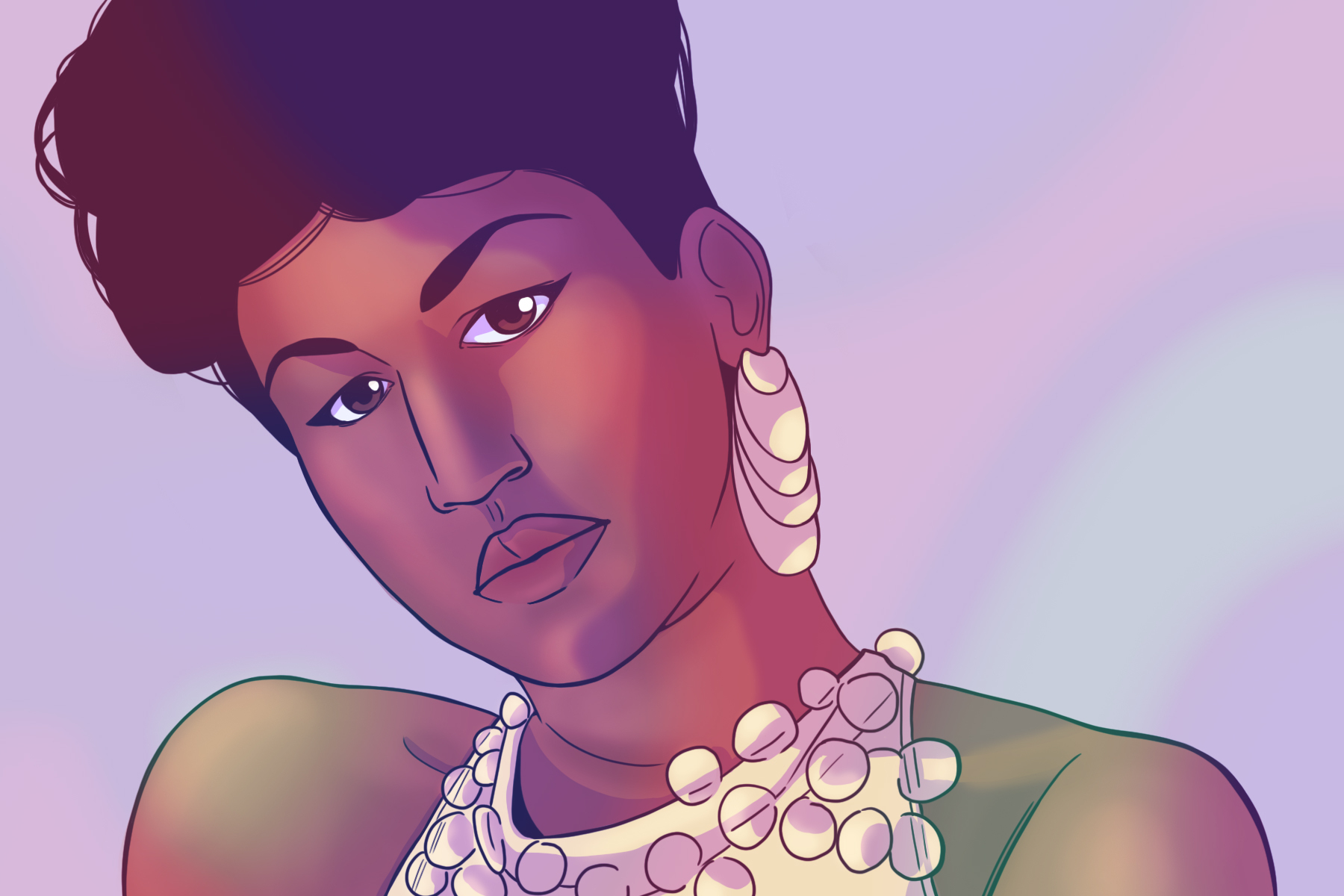Early into Liesl Tommy’s “Respect,” iconic gospel singer James Cleveland tells a young Aretha Franklin that “Music will save your life.” And, as the next two and a half hours reveal, Cleveland is right — for the most part.
Throughout “Respect,” C.J. Franklin, an extremely well-connected and influential preacher, wakes his daughter in the night to perform for civil rights events and brings her on tour with him, putting her in close contact with Martin Luther King Jr., Dinah Washington, James Cleveland and other figures important to the movement.
Music does a lot for Aretha — or “Re,” for short. It was her refuge and playground from early childhood, not to mention the first 20 years of Aretha’s career that the biopic covers. Through music, Aretha releases her pent-up desire for selfhood through a medium that, for her, holds no limitations. Throughout “Respect,” Aretha walks to the piano bench not only when joy bubbles from her lips, but also when she doesn’t know where else to go.
As a child, Aretha lived through sexual abuse (which, “Respect” asserts, is the reason behind her pregnancy at 12). She also shouldered the consequences of her father’s need for control, chronic infidelity and outright abuse — not to mention the death of her mother. Like a straight-backed sapling, Aretha’s pure relationship to music survived the hail of her father’s dangerous flaws.
When Aretha is a young woman, Franklin buys his daughter a plane ticket to New York, where she will accompany him to meet with a representative of Columbia Records. This expository scene ensues at a large, outdoor get-together, and it establishes the complex mood of Tommy’s film for several reasons.
Perhaps most striking is its visuals, which imbue the setting with simultaneous realism and romance. The waning sun has deepened the bushes into dark green, and the red and gold sweaters of the women at the party glow like streetlights in the rain. These warm tones help lighten the film’s heavy themes, making them feel more like part of a wholesome universe than shattered, disparate nightmares. (On the other hand, the few moments that “Respect” indulges in blue-gray filters are highly significant.)
At Columbia Records, Aretha’s father is the one who pushes his voice out to the representative as her manager, and he is the one who thrusts his hand forward to shake. Throughout the commercially and artistically unsuccessful years at Columbia that follow, Franklin continues to not only manage, but also disparage, dishonor and abuse the daughter whose talent he esteems.
The chaos that ensues finds its roots in scenes like this — Aretha changing studios, replacing her father with her bad-news boyfriend, moving her family and more. In fact, all of Aretha’s major life decisions are a kind of unrestrained cry for agency.
Aretha is angry at the closest men in her life, who encourage, comfort and abuse her by turns. Her deep-seated emotion is justified, but her immaturity and inability to solve the situation around her is equally apparent. Aretha’s fumbling efforts are endearing, however. Regardless of her role models, or lack thereof, Aretha is sincerely trying.
As viewers watch her toddler step toward freedom, Aretha unleashes her voice. The real-life Aretha chose Jennifer Hudson to play herself in the movie’s starring role, and Hudson does her proud, especially when she opens her mouth. Wisely, Hudson embraces the cadence of her own singing voice rather than attempting to mimic Aretha’s sound, with results that send shivers down the spine.
As K. Austin Collins writes for Rolling Stone, “It isn’t that she sounds like Aretha when she sings, or that she’s even trying to pull off a plain imitation. It’s that, while finding ways to approach Aretha’s sound while tamping down some of her own, different style, she digs to the root of the songs, their feelings, in ways that tell us what the movie — what the songs — are all really about.”
In short, as Odie Henderson puts it in Roger Ebert, “Jennifer Hudson sangs.”
Hudson’s voice transforms “Respect” like the cliched makeover in any coming-of-age story, in which an awkward eighth-grader with frizzy hair and glasses emerges in sleek waves and shiny lip gloss.
That isn’t to say that Tommy or screenwriter Tracey Scott Wilson fall short of competent storytelling. The challenge of a biopic like Aretha’s is that there are simply too many strands to unravel and present as one organized collection — even when that movie is two and a half hours long and ends only 20 years into Aretha’s career.
Because of this, the aspect of “Respect” that will endear audiences the most is its music. In some ways, “Respect” feels a bit like a sneaky musical, the kind of listening experience that absorbs fans and foes of the genre alike. In fact, musical fanatics may wish the whole film comprised of Aretha’s songs.
The power of Aretha’s songs and Hudson’s performance saturates the film as she makes more and more of her own musical decisions. The singer and composer’s songs flow from her like water from a faucet, and Hudson delivers every note convincingly.
The most compelling scenes in “Respect” lean into Aretha’s music-making process. Whether alone or with her sisters, Aretha’s genius woos the good ol’ boys in her backing band. In these scenes, something unique occurs. Audiences watch — and hear — the chemistry that is artistic creation between skilled individuals. Aretha gently pushes a chord into a cornucopia of sound, and for a moment, her face and voice make real the elements of a modern female biopic.
As Rolling Stone writes, “We get a healthy dose of the sense of Franklin and the gang’s process, of the ways they worked as artists — the kind of insight that films about artists curiously tend to shortchange.”
And, as a result of this creative energy, Franklin skyrockets from an unknown musician to a national inspiration. Her songs breathe with the warmhearted exasperation one might expect from a mother who never gets the respect she deserves after a long day. In one scene, a stranger approaches Aretha in a hotel lobby to thank her for making her feel seen.
“Respect” momentarily glows, like a sparkler, before burning out. The end of “Respect” grapples clumsily with the sudden emotional dives Aretha refers to as her demons, which drive her to the bottle, paranoia and senseless attacks on those who love her most. These demons are only semi-addressed by the film’s end, when a personal experience with unconditional love impels Aretha to stop “running from the Spirit.”
“Respect” is at its core a conversion story, and Aretha receives the childlike love she has been aching to avoid. The best-selling gospel music Aretha creates as a result of this conversion breathes with life, even if viewers may have a hard time buying that Aretha fully changed, considering her own inability to name the “demons” that possessed her.
By the end of the film, audiences may still question what exactly is going on in Aretha’s mind, not only regarding her experience with the Spirit, but also the other themes that pop in throughout the movie. Subjects such as politics, family and ego are left begging for more attention.
Of course, viewers may easily concede that even a long-running two hours and 30 minutes are not enough to fully unravel such a complex and contradictory life story.
What “Respect” does accomplish is grabbing a considerable fistful of the yarn, enough to convey information, if not full understanding. If the artistic style of realism can be defined by a constant balance of compromises, then “Respect” is a realistic, if somewhat shaky, account of an incredible life story.
















